Death, as we all know, can cause a real rollercoaster of emotions regardless of your age. As adults, we are able to understand the situation better and deal with grief in a healthier manner (at least we tried). Young children, on the other hand, do not have these capabilities. In fact, their reactions can be quite different. Grief is inevitable, but you can help them deal with it better. In this article, we are going to share with you how to talk to a school kid about death and share script to tell kids about death.
Related Reading:
- How to Talk about Death to Kids
- What to Do When Family Members Hurt You
- 8 Best Positive and Gentle Parenting Books for Toddlers’ Parents
- 10 Signs of Toxic Parenting and How to Deal with It
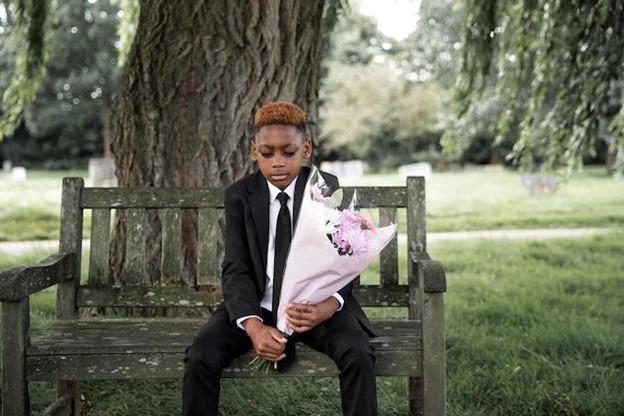
Table of Contents
Developmental Understanding Of Grief Based On Age
The way every child responds to and understands grief is different; it’s all unique. However, their developmental level and age can be a huge factor in determining how they understand and deal with grief. So, before you go on to learn how to talk to a school kid about death, you need to have a clear picture of how they see grief. It’ll help you approach that much needed talk a lot better.
1) Children under 2 years old

Children within 0–2 years do not understand something as abstract as death. When they lose a significant person in their life, they may understand feelings of separation and develop anxiety based on that. This is especially true when the death causes a change in their routine.
They are likely to react by throwing tantrums and changing eating habits or just based on your reaction to the loss as a parent or caregiver. They don’t know what death is, but they can tell that something has changed and will observe your reaction to the situation. The best thing for you to do in this case is to maintain their routine and try to soothe them when they throw those tantrums. There is no script to tell kids about death yet.
Related Reading:
- Why Your Toddler Tantrums (Reason and What To Do)
- 8 Steps to Stop Toddler Screaming – Why It Happens and How to Handle It
2) Children between 3 and 6 years old
When your little one is a toddler, their understanding of death shifts and they begin to see it as something temporary. They start asking questions like, “When will grandma come back?” Regardless of the fact that you have tried to explain the concept of death to them.
Some other children may slowly accept that their loved one is not coming back, but they may believe that a certain action they took caused the death. If a child gets a new toy, for instance, and their parent dies the same day, they may think it was the toy that caused the death. They may start blaming themselves for the loss.
Try to explain to them that the deceased is not coming back and that death is permanent. Also, encourage them to talk and express their feelings, and let them know the actual cause of their loved one’s death.
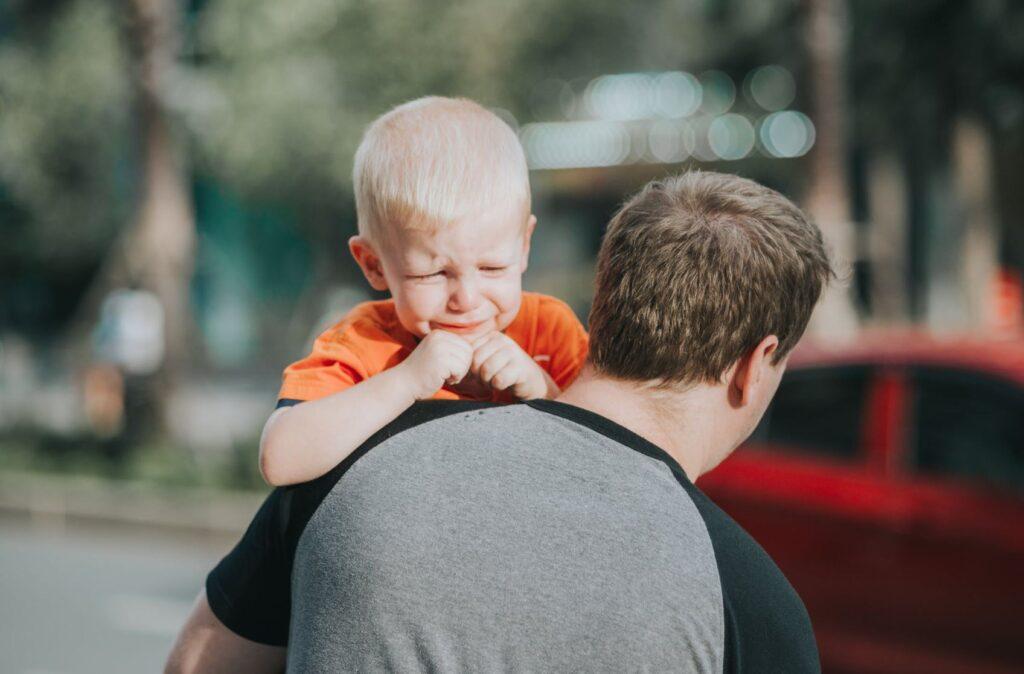
3) Children aged 6 to 12 years
From this age range, children start to fully understand that death is irreversible and universal. They also understand that it can happen to anyone, including themselves. This may lead them to start worrying about other significant people in their lives. They worry that other people may die and start to worry about their own bodily wellbeing.
Some children may attribute death to a physical being such as the boogieman or a monster, but as they near adolescence, they let go of that belief. It is around this time that these children start to become independent and form social skills.
Some of them may show signs of withdrawal at home and school and even try to hide their feelings because they may see it as a sign of weakness. They may change their eating habits, neglect school and even resort to bullying behaviors.
They may start to show curiosity towards cultural and religious beliefs pertaining to death. So, it is important you watch the religious references at this point, which we will be talking more about when we guide you on how to talk to a school kid about death.
They may also start to worry about practical things that the loss of a loved one may cause. Things like the family income or who will take on the responsibilities and roles of the deceased. You have to take your time to understand them, encourage them to speak about their feelings and allay their fears.
4) Teenagers over 12 years

Your child will start exercising independence during their teen years and may try to dissociate their ideals from the family. At this stage, they fully understand the concept of death and what it entails for them. They may find it difficult to cope when a loved one dies, and it may extend to their school life.
The above is especially true if responsibilities are immediately being passed on to them that the deceased once carried. They may appear indifferent towards the loss and try to shut everyone out. If your child or student does this, you’ll need to pay close attention to them as it can lead to some strong reactions.
Not all teenagers have extreme negative reactions, as some may show signs of sadness and isolation. They may also try to be involved in the funeral and such of their loved one. If this is the case, you’d want to deliberate on how to talk to a school kid about death properly, then go ahead and involve them as much as possible.
Script for Talking About Death
Before The Talk
When it’s finally time to have the big talk with your child, it can get overwhelming. Especially if the loss has affected you and you are also grieving. You may also find it difficult to talk to a kid about it. It’s okay to feel that way; it only means that you need to get yourself ready.
Understand that the way you react to a loss may not be the same as your child. Approach the conversation with an open mind, as your child may react in any way to death and to you. You could try to observe them and their behavior for a couple of days before trying to speak to them. This will largely guide what you can expect of them.
If you try to reach out and they seem not to be willing to talk, let them be. Give them some space before trying again and try to assure them that their feelings are valid and that you are there for them whenever they’re ready (that’s for children that have understood the reality of death).
Be Honest And Clear

This is especially important if your child believes death is reversible. The words you use may just have them develop that belief; things like, “Your grandma fell asleep and we lost her.” or “Pluto (a dog) went on a faraway journey.” Such statements may confuse your child. Instead, try to be as clear as possible about the reality of death. Let them know that the deceased is never coming back and that it is okay.
They may seem to grasp the idea the first time you have the talk, but it is possible for them to come back a few days later with questions like, “When is grandma coming back?” It doesn’t mean you have failed in your talk; it just means that they are taking in the idea of the loss slowly.
Also, let them know that you are there to support them regardless of their understanding of death. Try to make them understand that the loss of this significant person doesn’t mean they won’t have anybody to love and care for them. Show them that you, alongside other family members, friends, and teachers, will be with them all the way.
Watch Your Culture and Religious References
It isn’t a matter of whether you are religious or not. It is okay to talk about those beliefs and tie them to death when speaking to your child. However, saying things like, “Grandpa has been good, so God has taken him to be with him.” might not be a good idea, especially if you are dealing with a toddler.
Your child may develop rebellious and negative behavior if they don’t want to end up that way. That’s because your statement may make them develop the ideology that if they are too good, God will take them away.
Instead, say things like, “Grandpa has died and he won’t be coming back, but that’s okay, he’s in heaven now.” It can feel comforting to make thoughtful religious references to further soothe your child; that’s if your family is religious.
Script Examples
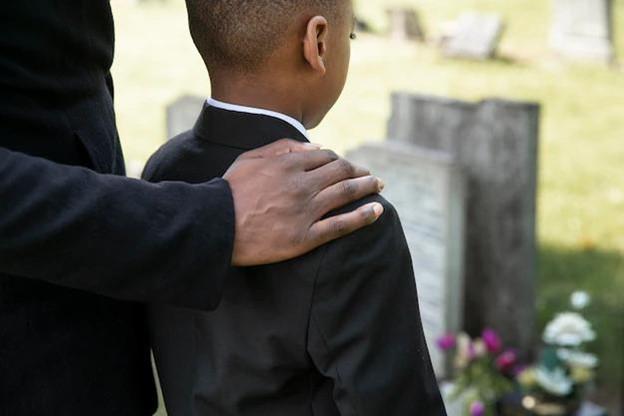
1) Death of a pet
Unlike some adults, children see the death of a pet as being as serious as losing a loved one. That’s because they are likely to form a tight bond with the animal that when it dies, they find it hard to accept that their beloved pet is gone.
You can start your conversation with something like,
“ I know that Bobby was very important to you and that you loved him very much. We had so much good time together. Unfortunately he is very sick and died. He will not coming back and he is not feel pain anymore. If you feel sad, just know that I’m here for you. We can talk about it or just sit together for a while.”
In addition to that, you can encourage them to create things like collages or scrapbooks to commemorate the loss of their pet. Or even get them to attend a charity event at the local pet store.
Related Reading:
2) Death of loved ones (Grandparents)

A child can have a particularly strong relationship with their grandparent, and if you don’t try to understand that, you’ll keep reading about how to talk to a school kid about death for a very long time. It can be really tough for your child, especially when they lose a grandparent with whom they were close.
It would be good if you gave them reassurances like,
“Honey, Grandpa is very sick and died this morning. He has been a long time in the hospital. The doctor did everything they can to help him. Unfortunately, his body does not function anymore. That means we cannot spend weekend or summer holiday with Grandpa. I know you miss him and me too. If you have any questions, I am always here.
“Honey, Grandpa is very sick and died this morning in the hospital. The cancer is too strong that his body cannot take it anymore. I know you miss Grandpa, me too. The good thing is, he does not feel pain anymore. If you feel sad, worried, or angry, I’m here for you. Many other people in our family are here, and we’re not leaving any time soon.”
You need to assure them of your presence and support because they may feel like they will soon lose so many other loved ones. We can’t be certain about this, but you want to reassure them anyway, unless you have a concrete reason not to.
3) Death of a friend

Losing a friend can take a toll on your child, especially when they are teens and it is likely to extend to their school life. They feel overwhelmed that their peer, who used to be a major part of their life, is suddenly gone.
You will want to show that you understand by saying things like,
“I know it hurts a lot that you won’t see Jay anymore, not in school, not at street dance class. Unfortunately bad things happens, he did nothing wrong and it is not because of you as well. Most kids live for a long time but terrible things do happens. If you have any questions or just need to talk, I’m right here.”
Some kids may start to worry that they may die soon, just like their friend did. It is important that you assure them they can still live a long, healthy life. And let teens hang out with other peers, as they may be more likely to open up to them.
4) Death In News
It is very much possible for your child to grieve over the death of a celebrity or, say, war victims they heard about on the news. And this is regardless of the fact that they may not be close to the person.
Tell them something like this:
You may wonder why it seems like a big deal, but to master how to talk to a school kid about death, you need to understand that they may have developed a bond with the deceased. You can help them cope by encouraging them to make mementos or join a charity organization for a cause the deceased supported.
“I saw on news that XXX died. Can you share with me what you know about him or her? so we can have them live in our memories”
This video will help you understand how to talk to a school kid about death further and see how you can structure your sentences in an easy-to-understand yet clear manner.
Book Recommendations About Death
1) Under 6 Years Old
- What Happens When A Loved One Dies?
This book allows adults to guide the conversation to a natural and reassuring conclusion by using questions posed in a child’s voice and answers that begin simply and become more in-depth. Further discussion is enabled by additional questions at the back of the book.
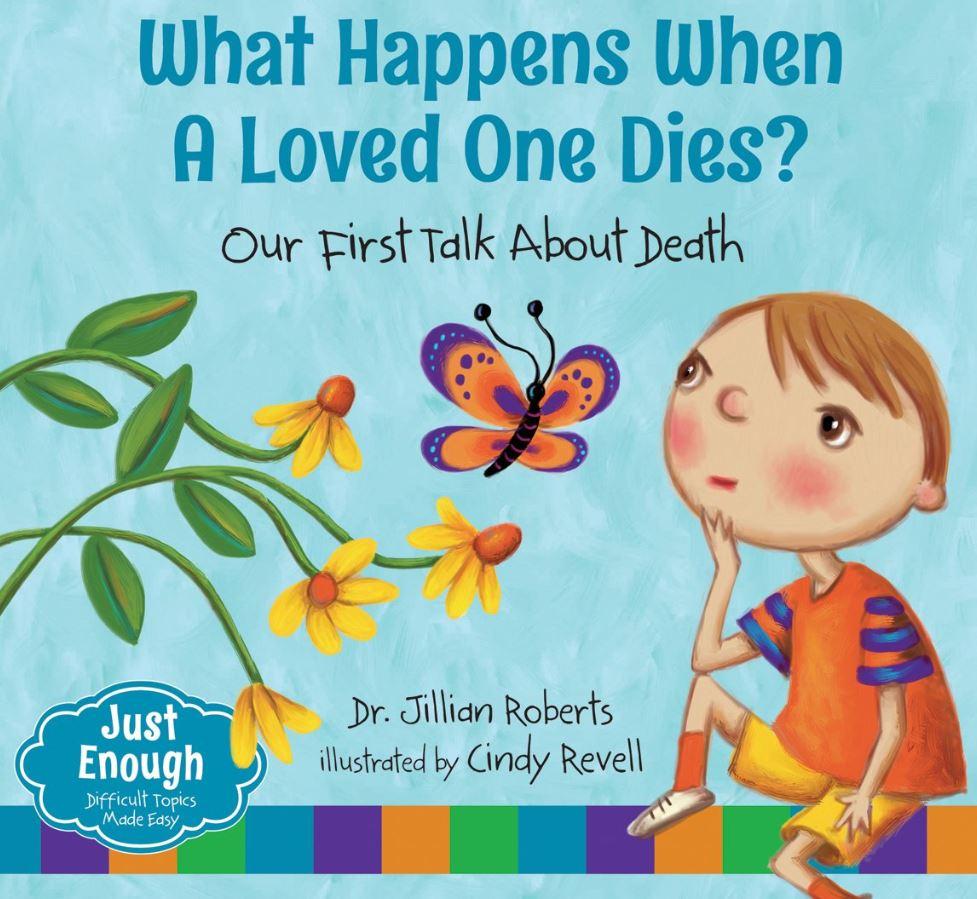
This book uses straightforward language to explain that death is a natural part of life and that grief and a sense of loss are normal reactions to the death of a loved one.
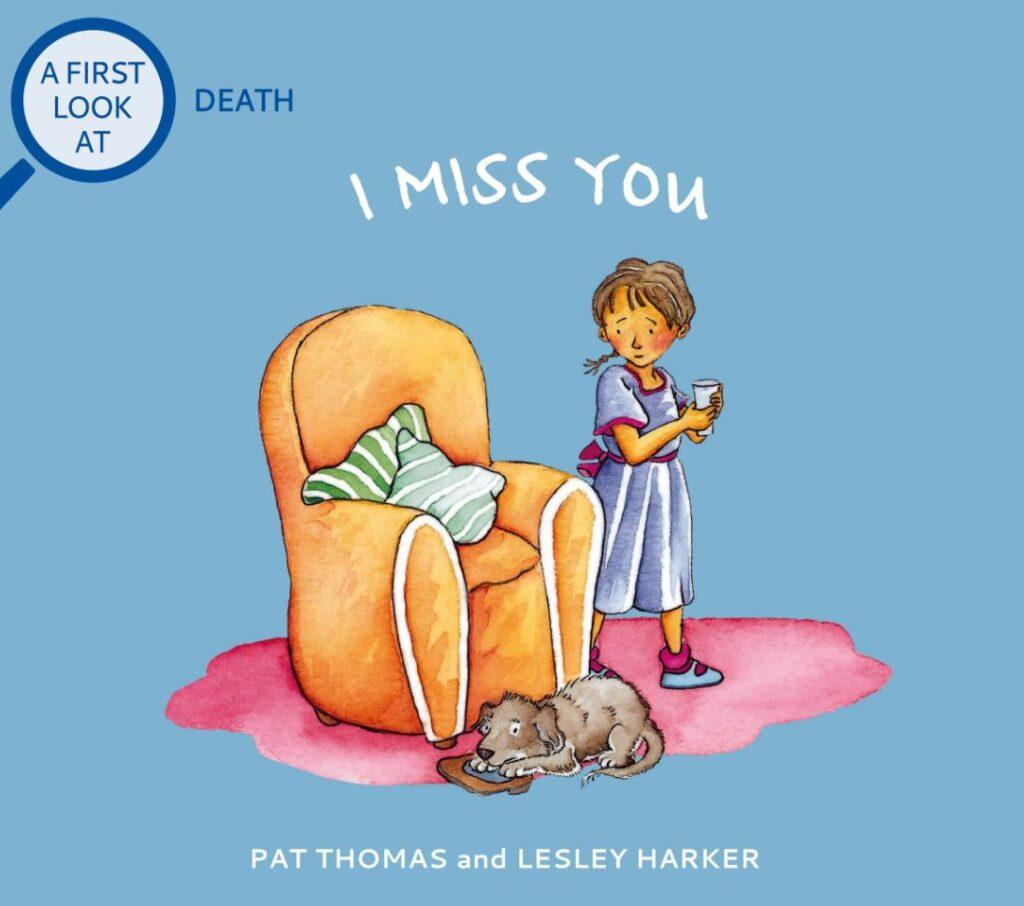
2) 6–12 Years
If you are worried about how to talk to a school kid about death, then you’ll definitely want to read this book with your child. This book takes on the journey of a young girl who keeps mementos and writes memories as a coping mechanism for the loss of a loved one.
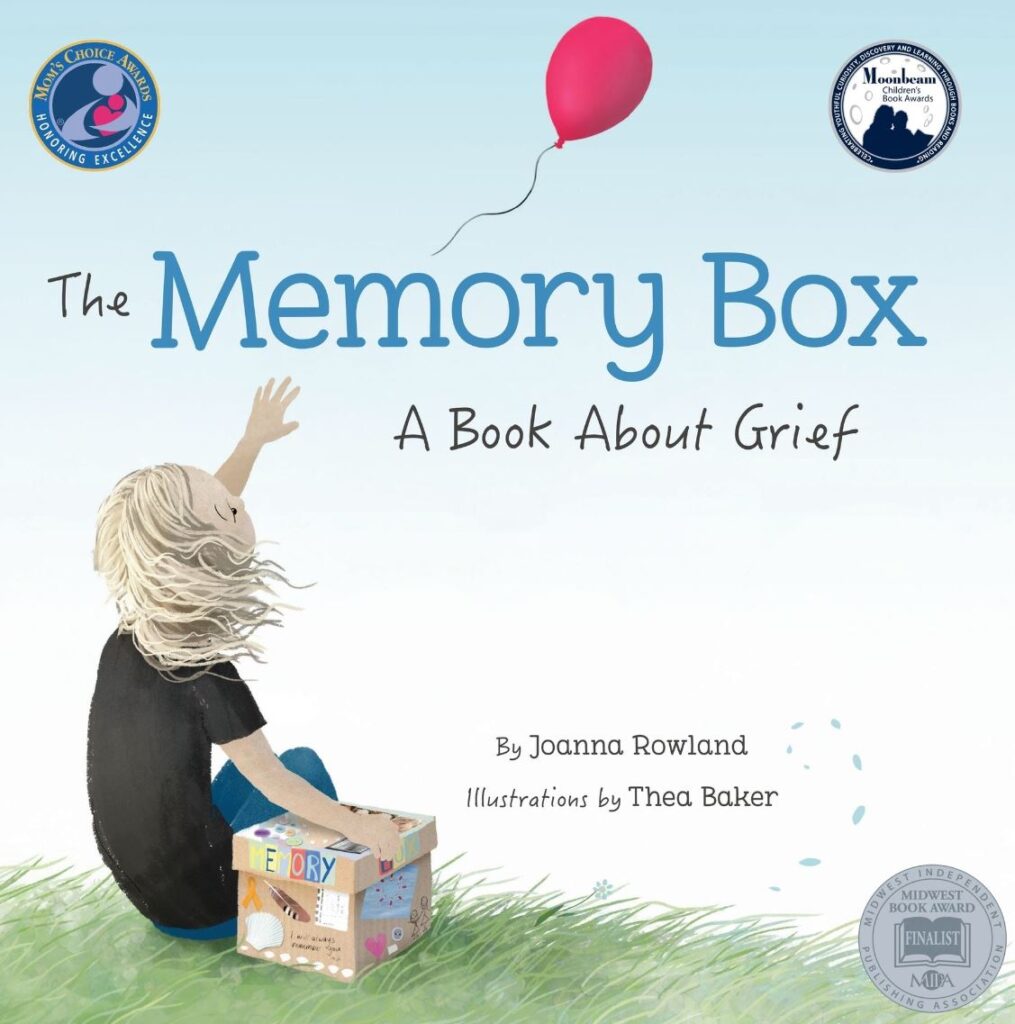
3) Over 12 Years
This is the teen book in a series geared towards providing actionable tips for people to deal with the loss of a loved one. It shows your teen that their feelings are normal and helps them grieve naturally.
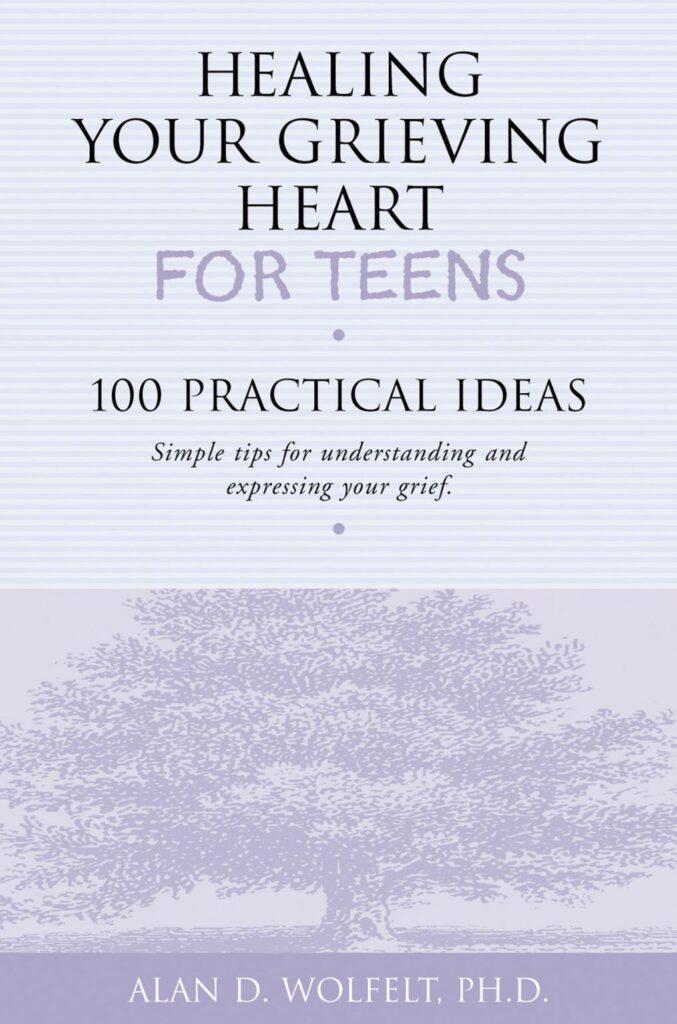
Movie or TV Recommendations About Death
1) Under 6 Years Old
This early Disney movie is about the story of a cub who loses his father and is exiled from his kingdom. He later finds two other animals who help him when he was deep in his grief.
This Disney movie follows the story a man who loses his wife and as a way to cope sets to take his on a balloon powered voyage to South America. And a young adventurous boy joins him.
2) 6–12 Years
Sometimes grief stems from the loss of a pet rather than the loss of a friend or relative. This early Disney movie depicts it perfectly as it takes you through the love and loss of a childhood dog.
This movie follows the life of a bereaved man and his two children. They just lost their dear wife and mom and move into a large house in a dying zoo all in a bid to save the zoo and the family.
This movie follows the journey of a young boy driven by a passion for music. He sets to find his great great grandfather when he is suddenly taken to the land if the dead.
Over 12 Years
This movie is based on a novel and is about a young boy who goes in search of a message he believes his deceased father left for him.
- The Farewell
Final Thoughts from Pragmatic Lifestyle
It can be very tough to talk to your child about death, not just for them but for you as well. That’s why we’re happy you have read through our guide on how to talk to a school kid about death. We hope you learned a thing or two, and don’t hesitate to reread this guide as many times as you want before the inevitable talk.
About Me
Hi, there. I am Lin. Together with my husband and two kids, we live in the beautiful Netherlands in Europe. I am dedicated to self-development, creating quality time for the whole family, and fully supporting kids with their potentials with all I have learned from engineering, MBA, and 10+ years of working experience in the energy sector.



1 Comment
Comments are closed.